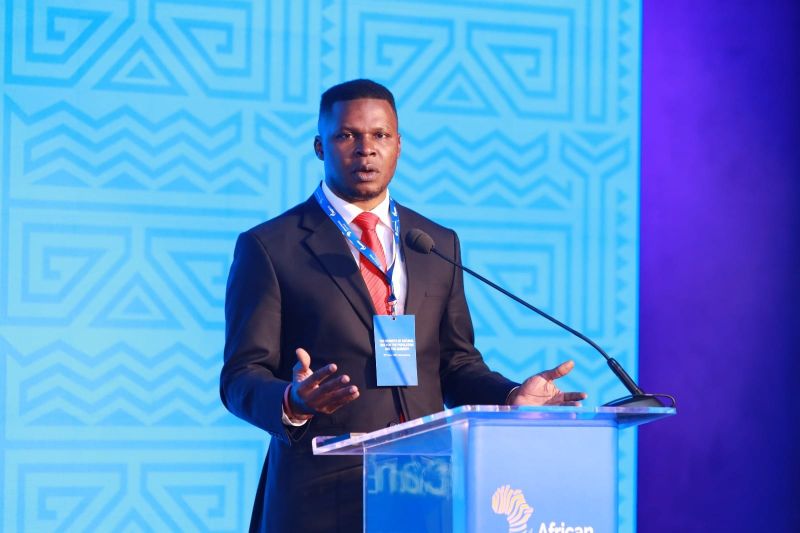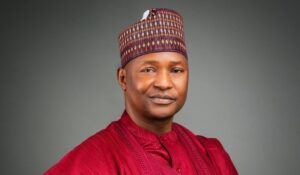
NJ Ayuk, Executive Chairman, African Energy Chamber
Wealthy nations and environmental groups have once again called for Africa to abandon its oil and gas ambitions. In a recent article by The Guardian, writers Fiona Harvey and Matthew Taylor urged African countries to stop gas exploration, claiming the continent must focus solely on renewable energy to combat climate change and achieve energy access.
This is not a new demand. For years, Western governments and environmental organizations have pressured African nations to leave their petroleum assets untapped.
At the African Energy Chamber (AEC), our position remains clear: Africa must play its role in global emissions reduction and take climate change seriously. However, we firmly reject the notion that others should dictate when and how Africa transitions away from oil and gas.
The reality is simple — when managed responsibly, oil and gas production can drive economic growth, ensure energy security, and uplift millions from poverty. This is the message every African leader should take to COP30 in Brazil: Africa has the right to produce and benefit from its natural resources and to determine its own energy transition timeline.
Africa’s Minimal Role in Global Emissions
Despite the global pushback, Africa remains the smallest contributor to global carbon emissions.
In 2023, the continent accounted for just 4% of global CO₂ emissions, producing 1.45 billion tonnes compared to China’s 11.47 billion tonnes. Over the past two decades, Africa’s share has never exceeded this 4% mark.
To put it in perspective, the average American emits as much CO₂ in one month as the average African emits in an entire year. Yet Africa faces the harshest criticism and restrictions — even though it suffers the most from climate change driven by industrialized nations.
As Andrew Kamau of Columbia University’s Center on Global Energy Policy aptly noted, Africa’s story is not one of “energy transition,” but of development. He questioned the idea that industrialization could be achieved solely through wind and solar power, pointing out the absence of any nation that has industrialized using renewables alone.
Read Also: West Africa’s Energy leaders to convene in Accra for clean energy cooperation summit
Moreover, the promised financial support from the West to aid Africa’s transition has largely failed to materialize, leaving the continent to find its own path.
Harnessing Africa’s Natural Resources for Growth
The African Energy Chamber supports the adoption of green technologies — but not under unrealistic timelines imposed by others. Africa must use the resources beneath its soil to achieve development and energy independence first.
Over 600 million Africans still lack access to reliable electricity or clean cooking fuels. For these people, the priority is not climate policy but access to basic energy that can power homes, refrigerate food, and drive businesses.
By 2050, Africa is projected to account for 11% of the global liquefied natural gas (LNG) market, with one of the fastest-growing supplies of natural gas. Tapping into this potential is essential for eradicating energy poverty and ensuring long-term economic growth.
As Mohamed Hamel, Secretary-General of the Gas Exporting Countries Forum, rightly stated, the notion that Africa should not develop its gas resources is “misguided.” He emphasized that a prosperous Africa is far better equipped to protect the environment and that access to finance and technology is key to achieving both growth and sustainability.
From Pressure to Partnership
At previous UN Climate Conferences (COPs), I have made it clear that while Africa will transition to renewables, it must do so on its own terms. What Africa needs is not pressure, but partnerships built on respect and mutual understanding.
We must move away from the perception that African leaders promoting oil and gas projects are acting out of greed. Many are implementing thoughtful policies — strengthening local content laws, attracting responsible investment, and protecting human dignity — to secure a better future for their people.
Africa’s fight is not against renewable energy, but against energy inequality. Our mission is to achieve a just transition that uplifts Africans, not one that keeps them in the dark.
We will continue to advocate for Africa’s right to use its resources, chart its own path, and decide its own energy future. The continent’s prosperity — and its people’s dignity — depend on it.






